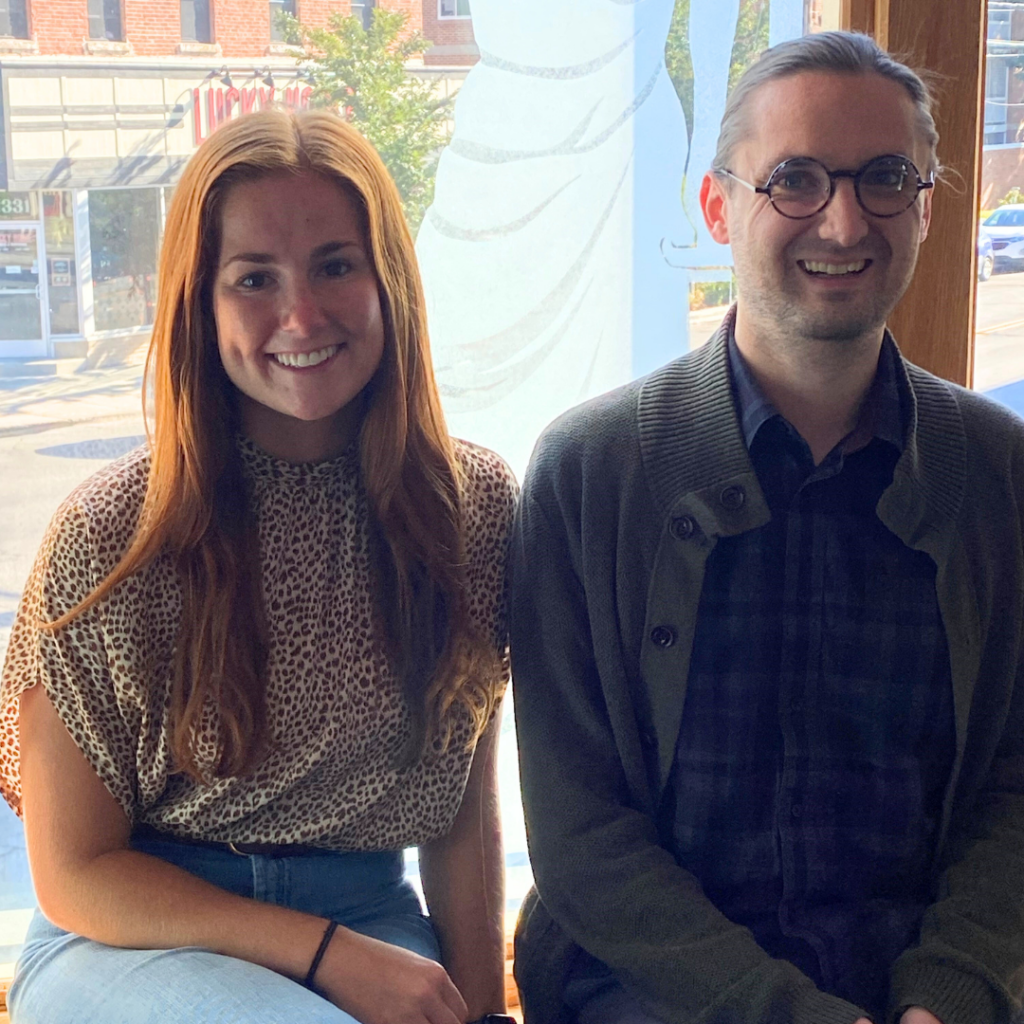
Darbi Spellman’s first week interning with the Drake Wrongful Convictions Clinic (WCC) didn’t start with paperwork or orientation—it began with a high-stakes courtroom observation. She watched as Erica Nichols Cook, director of the Wrongful Conviction Unit for the Iowa State Public Defender’s Office and WCC supervisor, argued for a new trial in the case of William Beeman. Since his 1980 murder conviction, Beeman has maintained his innocence. Nichols Cook argued that crucial DNA evidence in his case had been destroyed in bad faith, a violation of his due process rights, which warranted a new trial. Beeman’s case was recently featured on an episode of the Public Defenseless podcast, where Nichols Cook discussed the implications of destroying DNA evidence in wrongful convictions. [Listen to “How the Destruction of DNA Evidence Might Keep an Innocent Person Behind Bars” here.]
The experience was transformative for Darbi. Previously, she’d clerked at a firm focused on workers’ compensation and insurance defense, but what she witnessed in the courtroom that day was different. She spent the rest of her summer with the WCC conducting research, reviewing case files, and preparing an expert witness for an upcoming hearing. By the end of the summer, she knew she wanted to continue, signing on as a student attorney for the fall semester.
This fall, third-year student Colegrove Withers joined Darbi as a student attorney at the WCC. A nontraditional student, Colegrove came to Drake Law after years as a paralegal in a civil and workers’ compensation law firm. His interest in criminal law was sparked by earlier work with the Polk County Attorney’s Office and some local litigation defense firms. He joined the WCC to deepen his understanding of the criminal justice system and to engage in work with a positive impact. “Our legal system isn’t perfect; there has to be a safety net for cases that slip through the cracks,” he observed. The clinic’s hands-on approach was exactly what he was looking for—a chance to apply classroom knowledge to real-world situations.
For Darbi, a class on implicit bias, false confessions, and systemic flaws taught by retired Federal District Judge and Professor Mark Bennett further solidified her interest. The Wrongful Convictions Clinic gave her an opportunity to apply those insights and directly work toward correcting injustice. “Knowing there are innocent people in prison is unsettling,” she shared. “Being able to help someone in that situation is incredibly rewarding.”
The judge in Beeman’s case ultimately denied relief and refused to grant him a new trial, and Darbi and Colegrove immediately began researching grounds for an appeal. Working with the clinic has given both students a profound sense of purpose. “Fighting to make sure someone feels heard, believed—that’s an honor,” Darbi explained.
Learn more about the Wrongful Convictions Clinic and all of Drake Law School’s clinic programs here.

